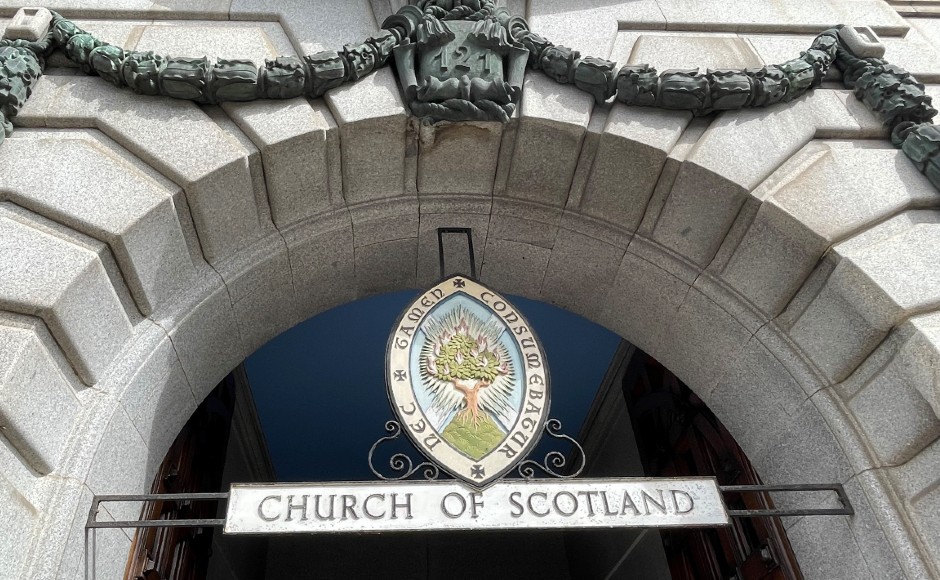Published on 25 June 2025
3 minutes read
A statement from Rev Tommy MacNeil, Convener of the Faith Action Programme Leadership Team (FAPLT), and Dr Mike Cantlay, Convener of the Social Care Council, in response to the publication of the Scottish Government commissioned report ‘Archival Research Conducted to Explore 20th Century Policies Affecting Gypsy/Traveller Communities in Scotland’:
The publication of this report on archival research exploring policies affecting Gypsy/Traveller communities in the 20th Century is an important contribution to our understanding of the history of Scotland and the experiences of people from these communities.
We appreciate the concern of the Scottish Government in commissioning it, and the efforts of those who have been involved in preparing it.

The Church of Scotland.
We make this statement as the Conveners of the committees of the Church of Scotland that are the successors to the agencies and boards of the Church which were involved in work with Gypsy/Traveller communities in the 20th Century.
On behalf of the Church of Scotland we offer a heartfelt and genuine apology for these historic wrongs highlighted in the report and carried out in the name of the Church.
Today we wish to say we stand in solidarity with those who suffered, and deeply regret the harm that came to them as a result of actions by the Church in the past.
We affirm the dignity of the people that our forebears wrote off.
In particular we regret, and are very sorry for, the trauma that was inflicted on Gypsy/Traveller communities, families and individuals by our Church.
We acknowledge that the Church of Scotland tolerated discrimination and the use of derogatory language by its employees and members.
The Church fostered an atmosphere of moral judgement which condemned as shameful any way of life that deviated from a particular view of what was “normal”. It disregarded the culture, values and respect for Gypsy/Travellers.
In the context of the Report we see how the actions and attitude of the Church of Scotland up to the 1970s contributed to the perpetuating of discriminatory and prejudicial views against Gypsy/Travellers across many parts of the settled community.
Where this led to family separation we are especially sorry, as we fully recognise the grief, trauma and disruption this causes can have long-lasting, even life-long, impact.
It is important that we acknowledge that there was a time when the Church of Scotland promoted discriminatory and prejudicial attitudes and actions towards Gypsy/Traveller communities in Scotland.
The historic treatment of Gypsy/Travellers by government, wider society and Churches has been intentionally and unintentionally discriminatory.
There will have been those in the Church who held prejudicial views and acted in a way which did not respect the cultural identities of the Gypsy/Traveller communities.
This is a matter of deep sadness and regret for the Church of Scotland.
The report presents challenging reading.
We recognise that the lasting impact of the Church and other organisations which has contributed to continued prejudice and discrimination against Scotland’s Gypsy/Traveller communities to this day.
The Church of Scotland has a long tradition of involvement in social and community work, and we know that many Church members and ministers in the 19th and 20th Century were motivated from a position of wanting to relieve poverty and, as they saw it, help to improve the lives of others.
Interventions which sought to house or settle Gypsy/Traveller communities can be seen as an intentional attempt to destroy a culture and a way of life.
The report draws the conclusion that this was a deliberate attempt by the Church to forcibly assimilate Gypsy/Travellers.
As Christians, we follow as Jesus asks us, to love our neighbours as ourselves.
Where we have fallen short, we humbly seek forgiveness and God’s guidance as we walk in the way of repentance, to turn our lives around, and to follow Him.
In the Church of Scotland we have sought to bring an open and fair mind to understanding this research and recommendations, and we seek to do so with humility and kindness.